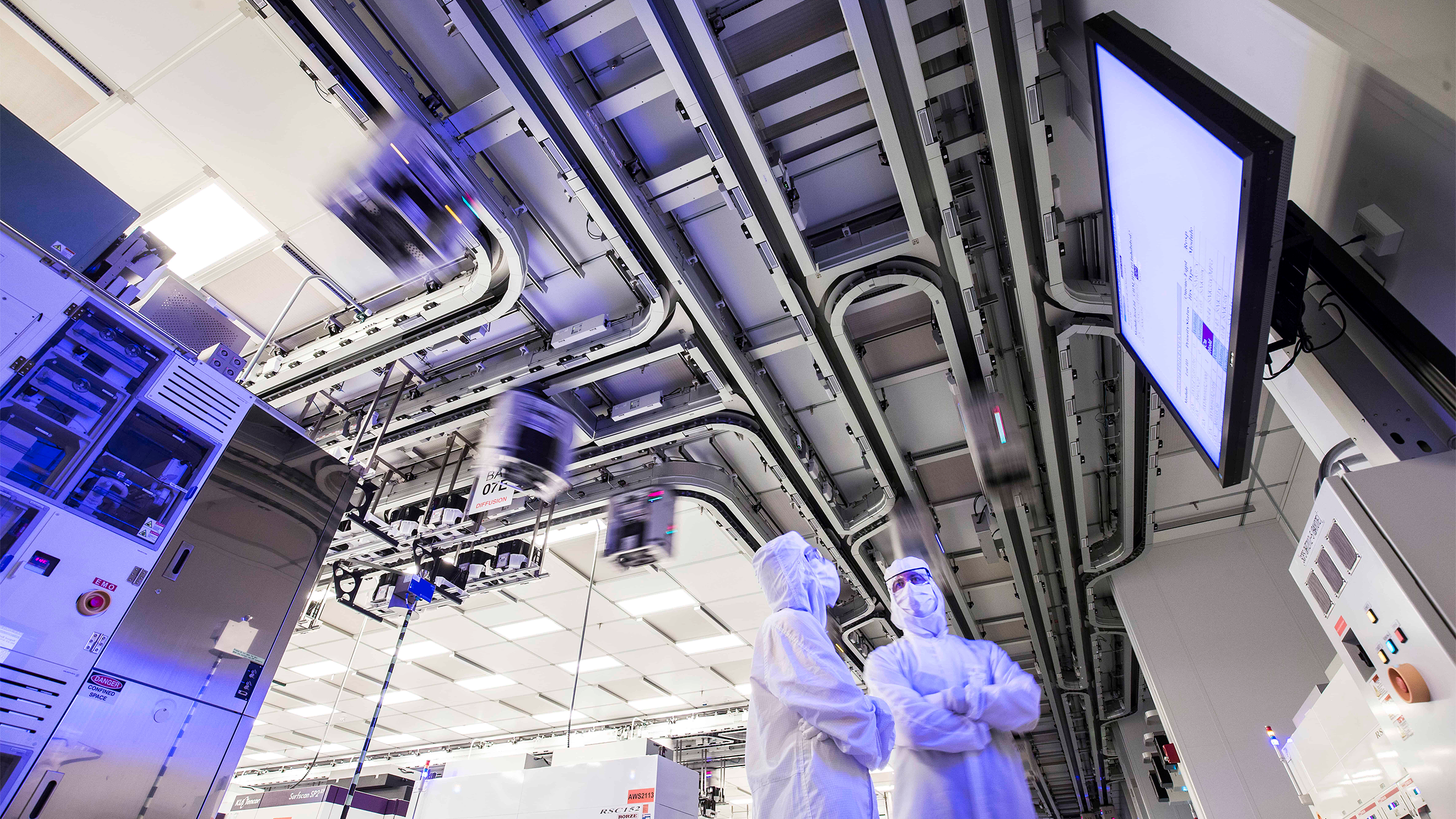Chipmakers race to get CHIPS Act dollars before White House changeover — TSMC and GlobalFoundries finalize applications, facilitating payouts

TSMC and GlobalFoundries have finalized CHIPS and Science Act funding agreements with the U.S. government to support their fab projects in America, reports Bloomberg. These will be the first two major foundries to receive actual money under the CHIPS and Science Act, which marks a significant step forward both for the bill and the companies — and it comes just months before President-elect Donald Trump's second administration begins, which creates uncertainty for chipmakers that were negotiating with President Joe Biden's administration.
The finalized agreements offer GlobalFoundries and TSMC billions of dollars in grants and loans to build and expand manufacturing facilities in the U.S. TSMC's agreement includes $6.6 billion in grants and up to $5 billion in loans to develop Fab 21 in Phoenix, Arizona. GlobalFoundries will receive $1.5 billion in grants and up to $1.6 billion in loans to construct a new semiconductor production facility in New York and expand operations in New York and Vermont. The company is also set to get $600 million from the state of New York.
This funding is part of the CHIPS and Science Act, an initiative with $39 billion designated for grants and additional loans and tax credits, aimed to bring the production of microelectronics on leading-edge process technologies back to the U.S. More than 20 companies are in line for funding under this act, but all applicants have undergone a thorough due diligence process, which has delayed some funding decisions. For example, Intel has invested about $30 billion in its American fabs over the past several but has yet to receive funding from the U.S. government.
A portion of the CHIPS Act's funds, around $3 billion, remains unallocated and may soon be divided among companies still in preliminary negotiation stages, reports Bloomberg.
The timing is critical as these funding decisions may transition into the Trump administration. Trump is set to take office in January. Industry representatives are pushing for swift finalization, not only to secure funding but also to prevent potential delays or policy shifts under Trump, who has recently criticized the CHIPS Act.
House Speaker Mike Johnson (R-LA), for example, recently hinted at possible changes to the CHIPS Act and suggested 'streamlining' the program. While he clarified that a complete repeal was not the goal and that the upcoming administration understands the value of domestic semiconductor production both for economy and national security, he initially said that a repeal was a possibility.
Get Tom's Hardware's best news and in-depth reviews, straight to your inbox.

Anton Shilov is a contributing writer at Tom’s Hardware. Over the past couple of decades, he has covered everything from CPUs and GPUs to supercomputers and from modern process technologies and latest fab tools to high-tech industry trends.
-
atomicWAR Disclasimer this post is simply about prices not the politics...Reply
Better move quick...Personally I would have those applications on lock down as soon as the CHIPS act passed. I'll be curious to see if increased tariffs proposed by the incoming administration are indeed put in place will it have any actual affect on how many parts are produced domestically so they can put those CHIPS dollars to good use. Will we as consumers see the price difference, assuming tariffs are incoming, on those domestically produced parts or will companies just raise the price across the board to make local and domestic parts look similar from a pricing stand point? I pray we don't see big price increases if this is the case personally but fear we will. I am currently on the fence on buying my wife a RTX 4060 laptop atm or wait till the RTX 5060 mobile. I worry I need to buy soon just in case the prices do skyrocket. -
why_wolf They'll just raise prices across the board, even on products that don't get hit with a direct tariff. That's what has happened 100% of time across all of history when trade restrictions and tariffs are used.Reply
Its the exact same thing that happens when a monopoly forms. Or companies collude with each other to control the price, OPEC style.
Its simple economics. If I know my competitor can't sell their products for less than a hundred dollars then all I have to do is charge $99 to corner the market. Even though yesterday said market was being sold for $50. The consumer has no choice and will pay way, way, WAY more. The cryptoboom and Covid have proven this already in the PC space. -
ezst036 Reply
Quick!Admin said:Chipmakers race to get CHIPS Act dollars before White House changeover
Run!
Gimmegimmegimmegimmegimmegimmegimmegimme before the free money dries up!
It's amazing the wealthy can cry poormouth when it suits them and the kabuki theater is successful. -
Notton We'll just have to wait and see what is actually implemented, but if the plan is to scrap the CHIPS act and put an import fee on all electronics from China, then you've cut your nose off to spite the face.Reply
So no local high paying engineering or R&D jobs, no construction, and no electronics manufacturing.
No, instead only tariffs.
That sounds like a crazy plan, but okay. -
2Be_or_Not2Be Tariffs always end up hitting the consumer's wallet, not the companies being levied. The US needs to invest more in local manufacturing, not hurting their own consumers.Reply
China does that with their automotive EV industry; EVs there can be had for much less than $30k, mainly due to gov't subsidies. The IRA and CHIPS acts both help to work on bringing manufacturing back to the US, so it would just be self-injury if Congress repeals those acts. Not saying it won't happen, though; many short-sighted acts happen when it means money in someone's pocket.